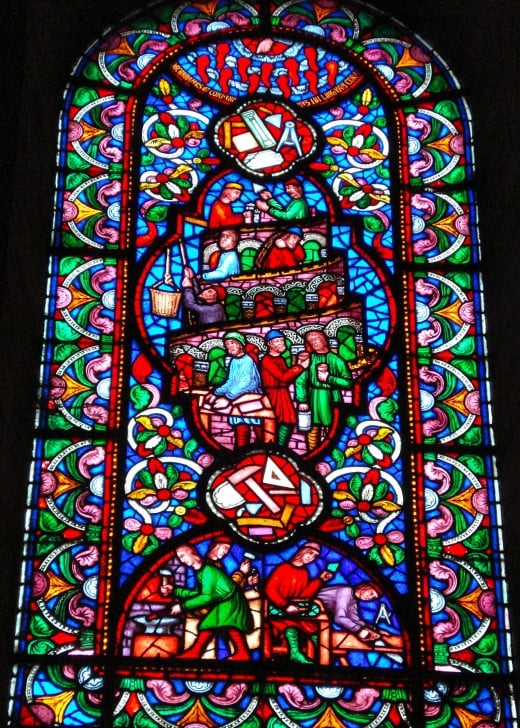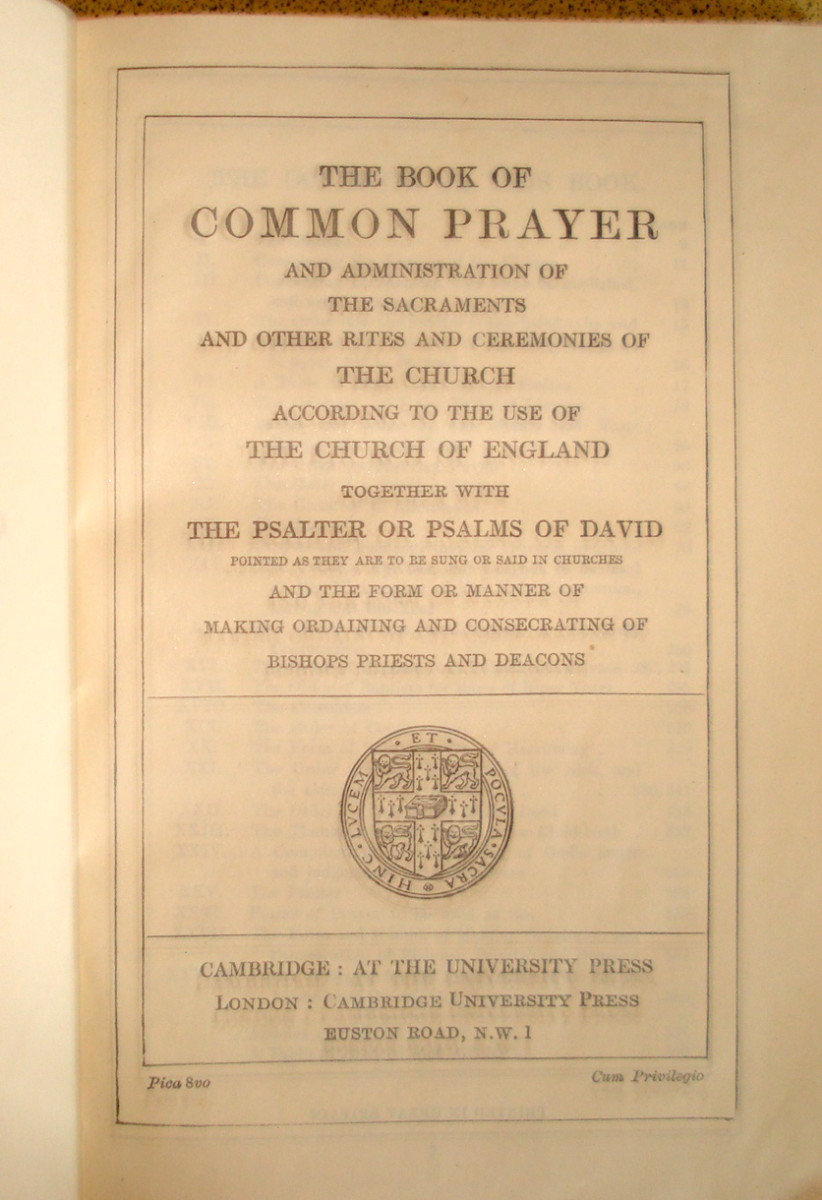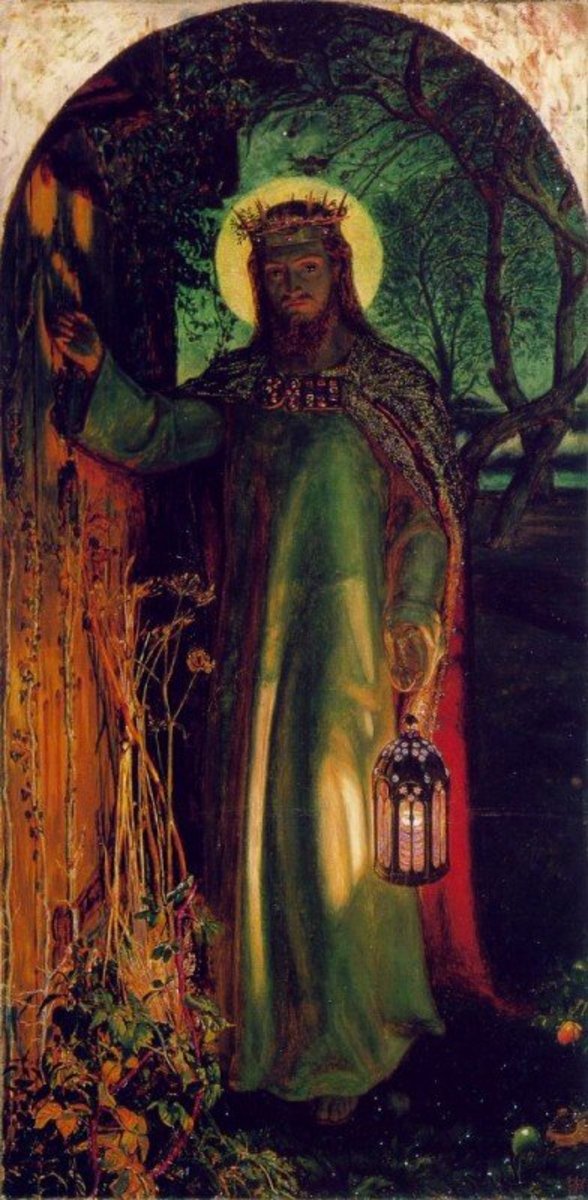Biblical Hermeneutics and Culture
Hermeneutics and Culture
For Christians, since the first century A.D. Biblical hermeneutics has been influenced by the state of the intellectual, artistic and social development of various different national and cultural groups. Although Biblical interpretation is in one sense intended for the universal church and for all time, it is also the specific revealing of God's Word for the time in which it is written. Biblical hermeneutics should therefore reflect the culture of that time if it is to have relevance for the people of the church who are living in that particular culture. This has been achieved in different ways through the ages, sometimes with considerable restrictions being placed upon it by the culture to which it has spoken.

Jesus and Jewish Culture
When Jesus was living on earth as a human being He interpreted the Old Testament Scriptures according to the Jewish beliefs and customs which were inherent among the way of life of the people in the areas where He was living and working. He interpreted the Scriptures as they related to Himself: the Jews were looking forward to the advent of a Messiah so He related His coming to those Old Testament prophecies. He taught His followers, and especially HIs disciples, to 'search the Scriptures' diligently in order to understand and interpret them.
The Jews had many fastidious interpretations of the Ten Commandments and these had developed into a multitude of rules and laws that were often negative. Jesus explained to His followers that these rules placed unnecessary restrictions on their lives. He showed them that their culture had grown into one of repression instead of the freedom that God had planned for His people. Jesus led His followers to examine the Old Testament Scriptures in new ways. He condemned aspects of the Jewish culture that emphasized motives for keeping the Law, rather than focussing on an interpretation of the Law itself.
Hermeneutics and Culture in the Early Church
After Jesus' death and resurrection, God showed how His salvation was for all people and cultures.
- At Pentecost the Holy Spirit descended upon His disciples and they were enabled to speak to people of many languages and cultures.
- In St. Peter's vision he was instructed to take the message to the Gentiles. Then he had to learn to interpret the Scriptures for other cultures and nations.
- Paul had to learn to adapt his message to other cultures, too. He had been reared in the strictest Jewish faith, but his conversion showed him that Jesus was the Messiah for all people. He was changed from persecutor of Christians to great supporter of the faith. When he spoke to non-Jews he showed awareness of their cultures including their heathen practices and polytheistic worship. However, he did not alter the basic message.
- The New Testament writers interpreted the Old Testament Scriptures in relation to Jesus, so that their views influenced the way the Gospels were written.
- The early church was occupied with physical survival and 'The Revelation to John' portrays the struggle between the developing Christian culture and the power of Rome.

Hermeneutics and Culture in the Middle Ages
Surrounding cultures influenced changing interpretation of the Scriptures through ancient times and into the Middle Ages.
- Roman culture laid stress on law and order and this influenced ecclesiastical exegesis and led to various modifications. When Rome was sacked by the Goths in AD 410, the civilization began to collapse.
- Greek culture encompassed science and philosophy and also influenced Biblical interpretation as most commentators wrote in Greek.
Both Greek and Roman cultures are reflected in Biblical hermeneutics of the time. Many exegetes were bishops and while some of their writings still apply today, there was much that is now theologically unacceptable.
- Other religions also influenced writers. Before Constantine adopted Christianity, these included Mithraism which worshipped one god, the sun. Other religions so swayed some writers that even today many Christians still hold the tenet that the 'soul' is immortal, rather than believing in the resurrection of the body.
The influence of other religions is evident in the writings of Thomas Aquinas who made some philosophical assumptions that were at odds with Scripture and Christian morality. He also attempted to reconcile Christianity with Aristotle's philosophy that knowledge of God is attained only through the exercise of reason. Philosophers of the later Middle Ages continue to influence our thinking today.

Hermeneutics and Culture in the Reformation
With the Reformation a new era for Biblical interpretation commenced. Originally, the Reformers had only intended to improve traditional methods.
- Luther: In his efforts to present the Gospel afresh for their own time, Luther changed reliance on allegory, pointing towards a deeper research into the literal meaning of Scripture.
- Calvin: Like Luther, Calvin rejected allegory stressing concern for the original meaning of Scripture.
The rise of Protestantism led to much controversy between theologians and critical research was violently suppressed as it threatened traditional order. However, the cultural change had begun.
- Spinoza: A Dutch Jew, Spinoza suffered expulsion as a heretic as he worked to break down a conservatism that attached false meanings to many texts. He contributed towards the formulation of a method of studying the Bible where each text should be understood in its historical context.
Eventually there was a relaxation by the orthodox churches and others were able to follow the lead.
- Lowth: At a time when interest increased in secular literature in a number of European nations, Lowth discovered the system of parallelism in Hebrew poetry and this encouraged the study of literary forms in the Bible.
The Technological Age and Hermeneutics
During the nineteenth century growth of secular universities led to greater study of the Bible as literature and further growth of Rationalism. Even Biblical scholars who professed Christianity frequently rejected the historical and miraculous. These attitudes and influences have continued into the twenty-first century. However, alongside the radicals, more conservative interpreters have been aided by branches of history and science. Archeological researchers have investigated and found accurate historical Christian origins.
Biblical hermeneutics reflect the culture of its time. Originally, Old Testament Scriptures were exclusively for the Jews and they interpreted it according to their intellectual and social development needs. Since New Testment times Christians have viewed the whole Bible as God's Word revealed to His people by the Holy Spirit. This revelation has been influenced by the current culture and has reflected it. Exegetes have ranged from an ecclesiastical monopoly during the Middle Ages, to the present where the traditional role of the church is often removed and individual interpretation takes place at a purely personal level.
Much of our present culture depends on technology and the computer in its varied forms. This is reflected in recent hermeneutics. Modern technology can be a useful aid in investigation, but the Bible continues to provide answers to life's problems.
Christianity proclaims salvation for all and while hermeneutics aids Biblical interpretation to peoples of differing cultures, it also supports interpretation of the message as being universal, transcending all culture for all the ages.
- Hermeneutical Practice of Jesus and the Apostles in the New Testament
Biblical hermeneutics help to appreciate the techniques of exegetical critical techniques. Its practice in the New Testament is based on the Old Testament Scriptures and Jesus is our model as He taught us how to seek below the surface meanings. - St. Augustine's Contribution to Biblical Hermeneutics
St. Augustine, an African priest who was made a bishop just before the beginning of the fifth century, wrote many works that are considered seminal in the area of Biblical Hermeneutics. - John Calvin's Hermeneutical Perspective
The writings of John Calvin greatly influenced the Reformation and continues to influence the Protestant Church today. A study of his work reveals several flaws in his thinking but also highlights the lasting significance of his contribution.









